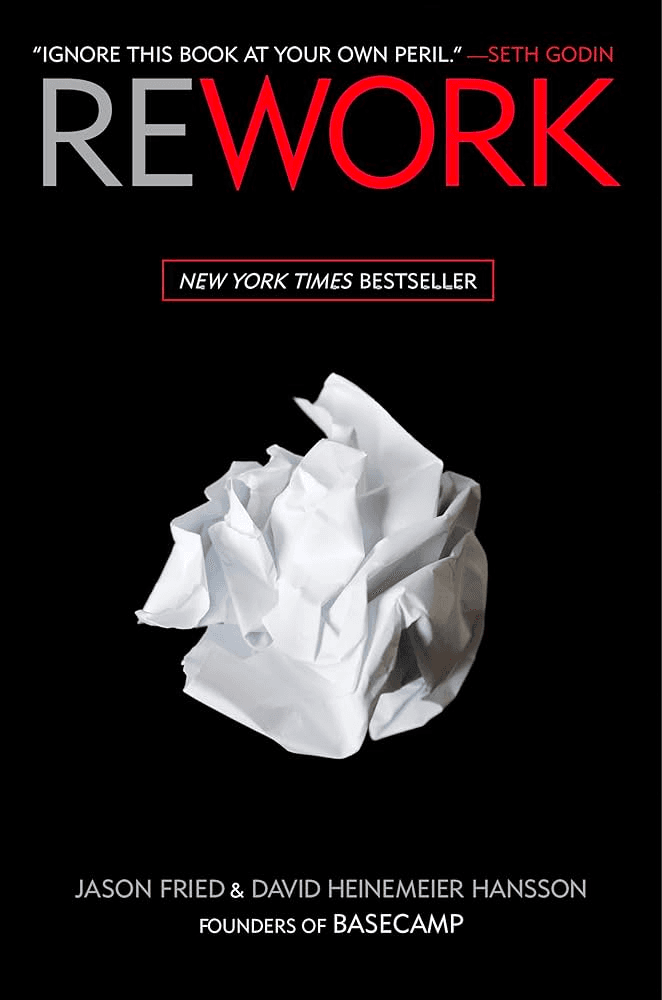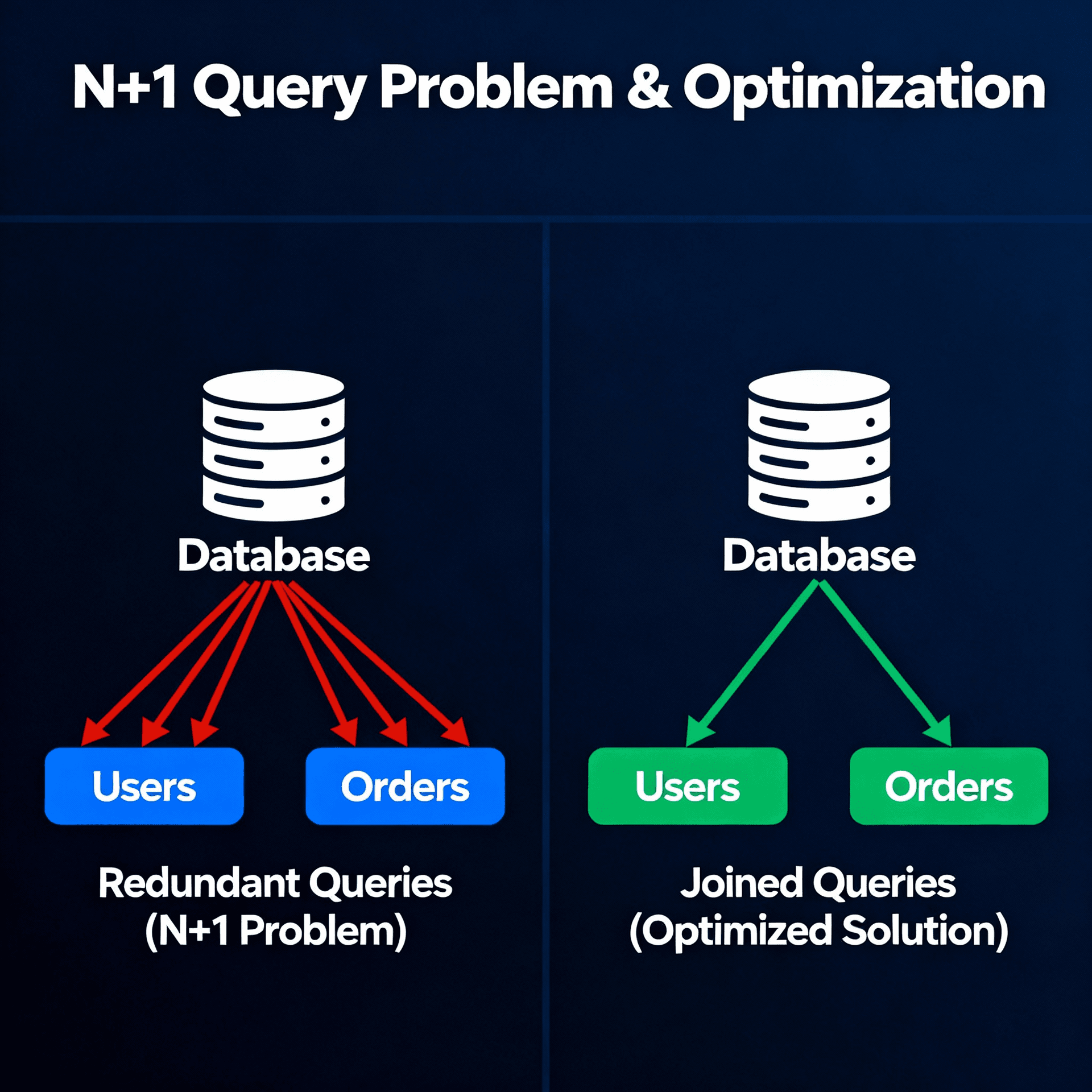ReWork

Abílio Azevedo
TAKEDOWNS
- Ignore the real world - Don't use "that would never work in the real world" as an excuse. People often don't really know.
- Learning from mistakes is overrated - Failure in business has become an expected rite of passage, but it shouldn't be.
- Planning is guessing - Making detailed long term plans is futile. Focus on what you will do this week instead.
- Why grow? - Staying small can be an advantage, growing just for the sake of it often backfires.
- Workaholism - Some people create crises so they can work overtime and feel heroic.
- Enough with “entrepreneurs” - Replace this fancy term with the more humble "starters".
GO
- Make a dent in the universe - Do work that makes people's lives better so they notice if you disappear.
- Scratch your own itch - Make something you yourself want to use.
- Start making something - What matters is creating, not just having an idea.
- No time is no excuse - Find the time, don't just complain about being too busy.
- Draw a line in the sand - Decide what you stand for instead of being generic.
- Mission statement impossible - Corporate mission statements tend to be generic nonsense.
- Outside money is Plan Z - Bootstrapping should be the default approach, investors later if needed.
- You need less than you think - Cut your assumptions on budget, people required etc by half or more.
- Start a business, not a startup - Focus on sustainability and revenue from the start rather than chasing valuation.
- Building to flip is building to flop - Making decisions focused on an easy exit often compromises quality.
- Less mass - Stay as lean and flexible as when you started out.
PROGRESS
- Embrace constraints - Limitations force you to be creative and eliminate waste.
- Build half a product, not a half-assed product - Trying to build too many features at once leads to a crappy product. Prioritize ruthlessly.
- Start at the epicenter - Ignore peripheral stuff early on and focus on the critically important parts first.
- Ignore the details early on - Defer unimportant decisions as long as possible, especially early on.
- Making the call is making progress - Committing to a decision and moving forward is better than waiting for the perfect solution.
- Be a curator - Apply an editing mindset to eliminate the merely good in order to make space for the best ideas.
- Throw less at the problem - Trying to solve problems by throwing money/people/resources often backfires. Constraints breed creativity.
- Focus on what won’t change - Latching onto the latest hot trends is risky long-term, build on foundations that won't shift quickly.
- Tone is in your fingers - Features and technology can be copied, but your unique personality and thinking cannot be.
PRODUCTIVITY
- Illusions of agreement - Abstract documents often create the illusion of agreement when people interpret them differently.
- Reasons to quit - Ask tough questions about priorities and goals to ensure you're working on what truly matters.
- Interruption is the enemy of productivity - Context switching kills productivity, distractions and meetings especially.
- Meetings are toxic - They waste time, drift off topic easily, need excessive prep, and suck the life out of productivity.
- Good enough is fine - Seeking complex, perfect solutions to problems can give an intellectual rush while being counterproductive. Apply just enough effort to solve the issue.
- Quick wins - Momentum and motivation come from moving fast and demonstrating progress.
- Don't be a hero - Know when to quit if something is dragging on much longer than expected.
- Go to sleep - Sacrificing sleep destroys creativity and productivity.
- Your estimates suck - Most estimates are too optimistic. Leave lots of buffer time.
- Long lists don't get done - Break things down into smaller, actionable next steps.
- Make tiny decisions - Incremental tiny decisions keep you moving while avoiding big potentially mistaken bets.
COMPETITORS
- Don’t copy - Imitation can be part of learning, but don't just copy others long-term.
- Demoditize your product - Make what you offer stand out by baking your unique personality and thinking into it so it can't easily be copied.
- Pick a fight - Picking a competitor to challenge positions you and gives your supporters something to rally around.
- Underdo your competition - Trying to match the scale or scope of larger competitors on their own terms rarely succeeds. Do less but do it exceptionally well.
- Who cares what they’re doing? - Obsessing about competitors breeds unhealthy paranoia and distraction. Stay focused on your own vision.
EVOLUTION
- Say no by default - Set the default to say no to avoid getting spread too thin and losing sight of what really matters.
- Let your customers outgrow you - Be willing to part ways with customers who make overly demanding custom requests that don't match your vision.
- Don't confuse enthusiasm with priority - The excitement rush of a new idea makes it tempting to drop everything else and pursue it, but that excitement quickly fades. Carefully evaluate what's really most important.
- Be at-home good - Don't just optimize for what seems best in the store. Ensure it still feels like the right choice when actually put to use.
- Don't write it down - Let your customers be your memory. The requests repeated most often indicate what matters most.
PROMOTION
- Welcome obscurity - Being unknown allows you to make mistakes privately as you improve.
- Build an audience - Having fans invested in your work provides a huge advantage over just having customers.
- Out-teach your competition - Teaching and sharing knowledge in your space allows you to stand out from competitors focused only on sales.
- Emulate chefs - Chefs like Emeril Lagasse have huge followings because they openly share recipes and techniques instead of guarding secrets.
- Go behind the scenes - Give customers an inside look at how your business operates instead of hiding the sausage-making.
- Nobody likes plastic flowers - Have flaws and quirks to come across as genuine instead of hiding behind a slick veneer of perfection.
- Press releases are spam - Generic press releases sent en masse get ignored just like email spam.
- Forget the Wall Street Journal - As a small company realistically you won't get coverage in big mainstream publications right away no matter what you try.
- Drug dealers get it right - Give people a small, free taste upfront knowing the quality will leave them wanting more.
- Marketing is not a department - Everyone in the company, not just the marketing team, contributes to marketing via their work and interactions every day.
- Marketing is not a department - The myth is that successes happen overnight. This ignores the groundwork that made it possible. Lay the foundation in obscurity first before going public. Building an audience and fine-tuning your work takes time. Success comes from daily progress.
HIRING
- Do it yourself first - Trying to do every role yourself first equips you to hire for it better later.
- Hire when it hurts - Delay hiring as long as possible until the pain of not having enough hands absolutely demands it.
- Pass on great people - Avoid accumulating people without a clear, immediate purpose even if they seem talented.
- Strangers at a cocktail party - Resumes tell you nothing about how candidates will actually perform or fit into real workplace scenarios and culture.
- Resumes are ridiculous - Resumes are almost entirely marketing fluff with little info anyone can actually confirm or trust.
- Years of irrelevance - Judging candidates simply by years of experience rewards time but not skill or results.
- Forget formal education - Requirements like degrees filter out unconventional thinkers while certificates show little about practical skills.
- Everybody works - At small scale everyone needs to actively contribute individual work rather than merely delegate.
- Hire managers of one - Seek self-motivated people who set their own direction without micromanagement.
- Hire great writers - Great writing equates to great thinking and conveys skill and credibility regardless of role.
- The best are everywhere - Thanks to remote work and technology, don't limit yourself to just local talent pools. Hire the best people regardless of geographic distance.
- Test-drive employees - Evaluate candidates directly based on actual work rather than just resumes and interviews.
DAMAGE CONTROL
- Own your bad news - Break bad news yourself directly and accurately before rumors or false information spreads.
- Speed changes everything - Fast and decisive action to address mistakes reassures people rather than compounding damage through slow responses.
- How to say you’re sorry - Any apology with excuses comes across as insincere. Take full responsibility, state how you are making amends, and explain how you will prevent it in the future.
- Put everyone on the front lines - Rotate all roles including executives to interface directly with customers so the entire company understands issues firsthand.
- Take a deep breath - After a major change, wait patiently through initial outraged reactions since they usually subside given time.
CULTURE
- You don’t create a culture - Strong cultures develop organically over longer periods of time. Attempts to instill culture quickly through top down mandates fail.
- Decisions are temporary - Most decisions can be revisited and changed later if needed. Avoid overplanning and analysis paralysis.
- Skip the rock stars - Job ads seeking "ninjas" and "rock stars" signal immature bro culture and environment.
- They’re not thirteen - Treat employees like responsible adults instead of children by eliminating contemptuous policies that restrict basic freedoms.
- Send people home at 5 - Requiring long hours and sacrificing personal lives breeds burnout and churn rather than sustainable loyalty and quality work.
- Don’t scar on the first cut - Don't overreact to first missteps by implementing heavy-handed policies. Give direct feedback first before considering policy changes if poor behavior persists.
- Sound like you - Don't hide behind formal, impersonal corporate-speak. Communication should match the real personalities of leadership.
- Four-letter words - Ban potentially divisive, aggressive language like "need" and "can't" that derails productive discussions.
- ASAP is poison - Implying other priorities are more important by demanding "as soon as possible" devalues people's existing work.
CONCLUSION
- Inspiration is perishable - Inspiration must be acted on immediately when it strikes. It won't wait for you.
Did you like?


